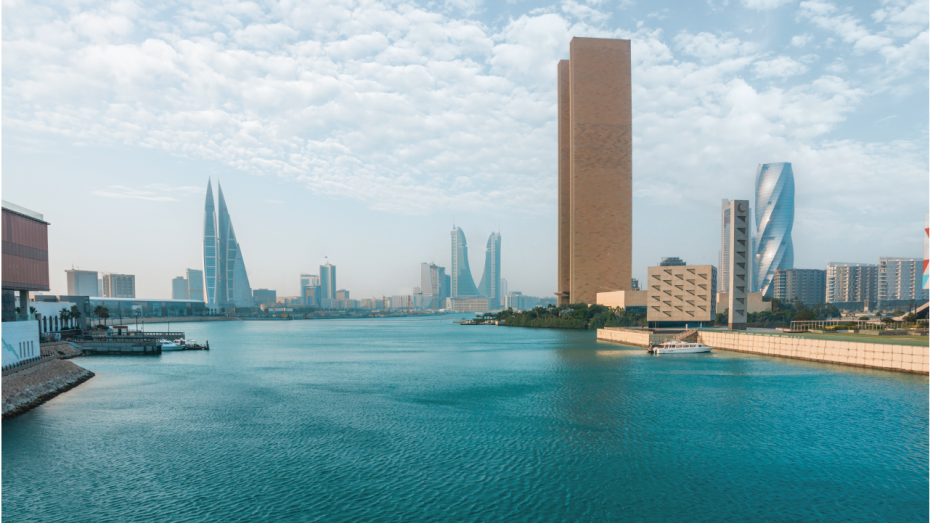Image courtesy of Bahrain EDB
Bahrain has granted its first ever “golden licence” offering incentives and simplified services to foreign and local companies bringing large-scale investment projects of more than $1.4 billion into the country.
The licences were awarded to Citi, Eagle Hills Diyar, Infracorp, Saudi Telecommunications Company (stc) and Whampoa Group. Bahrain’s investment agency, the Bahrain Economic Development Board (EDB), said companies eligible to receive golden licences have created more than 500 local jobs in their first few years in Bahrain or committed to investing more than $50 million, contributing to strengthening the country’s overall development.
EDB said it expects the greenfield project and expansion to create more than 1,400 job opportunities over the next three years to support the Kingdom’s economic recovery plans.
“The Golden License regime is a crucial step towards successfully achieving the goals of Bahrain’s Economic Recovery Plan, which aims to attract $2.5 billion in foreign investment by the end of 2023,” said Minister of Commerce and Industry Adel Fakhro.
The Golden License regime is expected to boost growth while enhancing the country’s competitiveness and spurring the digital transformation of the economy. “The Golden License targets domestic and foreign companies by offering a set of benefits and facilities for investment projects,” the investment firm said in a statement.
Whampoa Group, a Singapore-based investment firm with stakes in global tech companies, announced in May that it would establish the headquarters of a new digital bank in Bahrain.
“The Golden License is a successful example of public-private partnerships that have produced bespoke solutions for investors and start-ups,” said Khalid Humaidan, CEO of Bahrain EDB. “The new investment project is expected to create more than 1,400 new job opportunities in Bahrain’s financial services, tourism and technology sectors, cementing the country’s position on the international stage.”
The new licenses are part of an economic recovery plan launched by the Gulf state in October 2021 that aims to create more than 20,000 annual jobs for its nationals by 2024 and attract $2.5 billion in foreign investment by 2023.
Bahrain’s Golden License System
Meanwhile, Bahrain introduced a Golden Licence scheme in April, offering a wide range of privileges and benefits to qualifying companies, including priority allocation of land for investment, infrastructure and services, and easier access to government services, assistance and development funds.
The system provides licensed companies with streamlined access to government services such as approval of business licenses and building permits, as well as support from Bahrain’s Labour Fund, Tamkeen and the Bahrain Development Bank.
Other benefits include integrated collaboration with various government departments, a designated account manager from the EDB, and potential review of existing laws and regulations where necessary and applicable.
The Gulf state said the initiative was based on its growing investment attractiveness. The country’s latest move reflects visa regimes and other economic and structural reforms being implemented across the GCC region as its oil-rich neighbors seek to attract talent and foreign investment as they prepare for life after oil.
Saudi Arabia, Qatar, the UAE and Oman are taking steps to grant permanent residency to some foreigners.
Saudi Arabia’s economy is expected to have an outstanding year in 2022, with the Gulf state relatively unaffected by the global economic crisis, high inflation and high interest rates, and its economy is forecast to grow by 3 percent in 2023.

